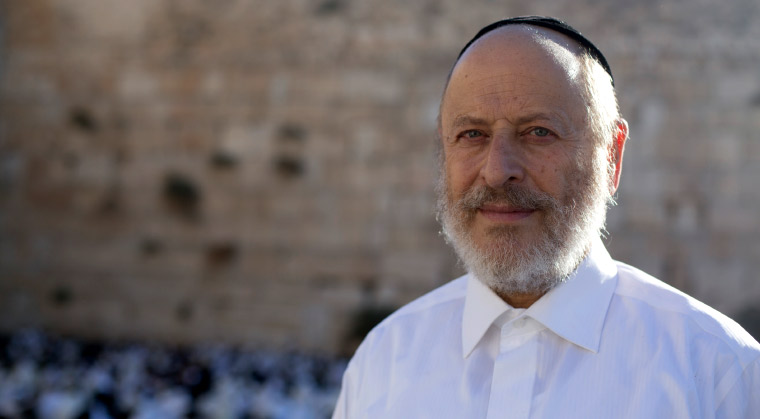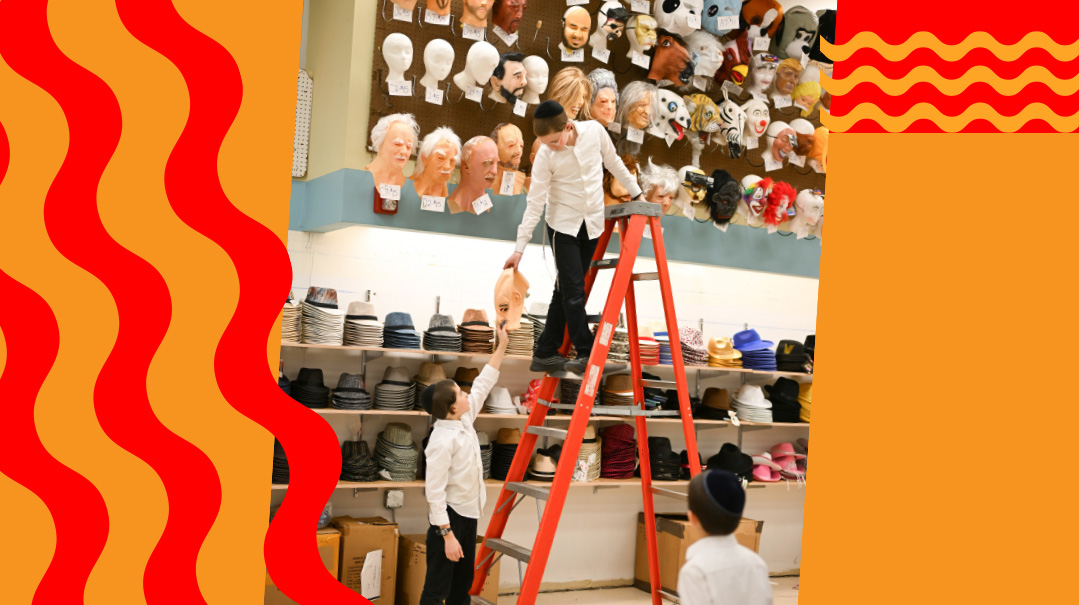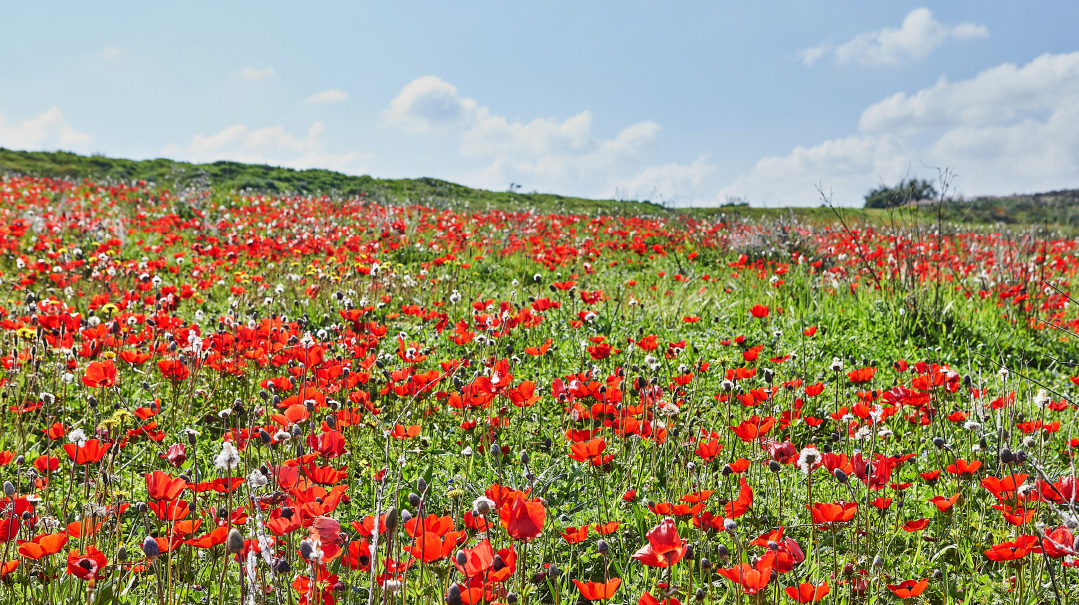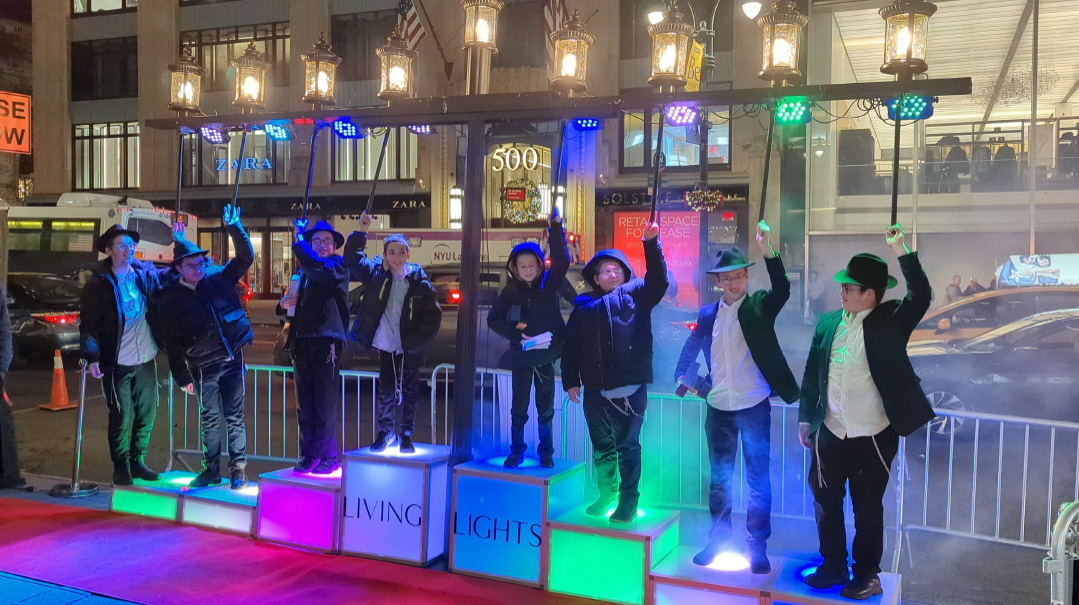Cuppa Kindness


Photos: Lior Mizrachi
Keeping It Low-Key
In the shadow of the Kosel, on ground hallowed by the footsteps of generations of hopeful Jews, an unassuming Yid with a trimmed beard and bright eyes engages in a tradition inspired by our forefathers.
Reb Dovid Weissenstern works quickly, one eye on the growing line coming forward from the Wall and the other on one of three huge hot water urns at his side: he’s preparing cups of coffee, tea, and “shoko,” working with the efficiency of a Starbucks barista.
There is a certain fluidity of motion and intuitive grasp of customer service that leads me to wonder about his day job. After all, when he completes his four-hour task here, it’s barely eight o’clock in the morning. He is a locksmith, he tells me, known to many customers from his Geula store. That makes sense.
While the line moves quickly, with relative order, there are occasional disruptions: someone pokes his head into the booth and indignantly informs Reb Dovid that he won’t use the disposable cups for ecological reasons.
“Of course, of course,” Reb Dovid says soothingly. “Here, use mine.” He washes his own glass mug, fills it with coffee, and hands it over.
Kosel Calling
Reb Dovid isn’t new to this, though it wasn’t what he signed up for. A regular participant at the pre-vasikin daf yomi shiur at the Kosel, he filled in for a friend traveling to Europe who asked him to prepare coffee for the shiur members, assorted soldiers, and policemen who guard the holy site.
The trip to Europe stretched out, and then the friend took ill. The shiur grew, and somehow, Reb Dovid was preparing drinks for a crowd beyond the shiur as well. Then, pre-Shacharis drinks became post-Shacharis drinks for mispallelim who were grateful for the hot elixir before they hurried off to start a new day.
“I was getting ready to retire, my children were already working with me, so this seemed like a calling. I discussed it with my wife, and here we are.”
Cup after Cup after Cup
Mrs. Weissenstern isn’t there today, and a quiet Yerushalmi volunteer takes her place, working quickly alongside Reb Dovid, but most days, she joins her husband.
The day starts at 2 a.m. for the Weissensterns. After he goes to the mikveh, Reb Dovid and his wife set out from their Givat Shaul home and pick up the milk they’ll need for the day — between 50 and 100 liters, depending on the time of year.
They arrive at the Kosel and get to work in the small booth, located on the western edge of the Kosel Plaza, provided to them by Rav Shmuel Rabinowitz and the government body responsible for the site. Originally, they funded the operation themselves, but in recent years, with the expenses exceeding thousands of shekels a day, he’s accepted help from those who wish to share in the merit.
On a regular day the Weissensterns can serve, free of charge, about 2,000 cups. But on busier days, like Chol Hamoed, bein hazmanim, or during Selichos, that number can rise to 5,000. The busiest day of the year is Hoshana Rabbah, but there is never a day when it’s quiet.
With one exception: the great snowstorm of 2013. “Everyone was warning me not to try to get to the Kosel. But a soldier doesn’t leave his post, so of course, I got up like I do every day, and I bundled up. There were no buses, no taxis, nothing, so I started to walk.”
Reb Dovid walked until the entrance to Givat Shaul, when a large army jeep passed him by. He managed to flag it down, and the driver peered out at him.
“Hey, David,” he exclaimed, “come, I’ll take you.”
Reb Dovid laughs. “The jeep driver is someone I hire to install safes — he’s worked for me. HaKadosh Baruch Hu sent him to help.
“It’s not cold in here, even in the winter,” he says, pointing to the huge urns. “The steam keeps us warm.”
There was one time he almost missed. He was hospitalized. “It was nothing serious, but they insisted on keeping me overnight.” His eyes flash, like a child about to pull a prank. “But I snuck out in the middle of the night, I did what I had to do here, and I was back by the time the doctor showed up for the morning rounds.”
Lots of Sugar
We’re quiet for a moment as we observe the crowd. He’s started to serve platters of cookies as well, and the line isn’t slowing down. Many of the “clients,” I note, don’t appear to be religious.
“Of course, everyone is welcome,” he says. “You know, if we’re doing Avraham Avinu’s work, then we have to really do it.”
He recalls asking Rav Elyashiv about the permissibility of feeding those who clearly wouldn’t make a brachah. Rav Elyashiv told him it was allowed, but advised him to hang up a sign with the correct brachos.
A police officer removes his sunglasses as he approaches. “Doovid,” he says, exaggerating the chareidi pronunciation.
Reb Dovid reaches out of the booth to clap the officer on the shoulder, and hands over a steaming cup of tea. “Lots of sugar,” he tells the officer, “special for you.”
“Tzaddik!” the officer says as he walks off, looking, somehow, a bit more fearless.
“Actually,” Reb Dovid says, “a lot of great rabbanim who come to the Kosel stop by, sometimes for a drink, other times just to give chizuk. Rav Elimelech Biderman came over one day and told me that the Torah only refers to two people with the term ‘tzaddik.’ Who? Noach and Yosef. The common denominator, he said, is that both were busy feeding others. Noach took care of the animals in the teivah, and Yosef the citizens of Mitzrayim. You see that the Torah takes that seriously.”
The crowd is starting to thin, but there’s still one customer, a man who is clearly somewhat deranged.
He speaks in a low growl, but the kindly locksmith understands.
“Of course I have nana tea for you, of course.”
Strains of Jews at prayer dance heavenward between the shafts of sunlight that descend like a waterfall across the plaza. Reb Dovid Weissenstern, locksmith of Geula, closes up for the day, having found the perfect key.
(Originally featured in Mishpacha, Issue 710)
Oops! We could not locate your form.






